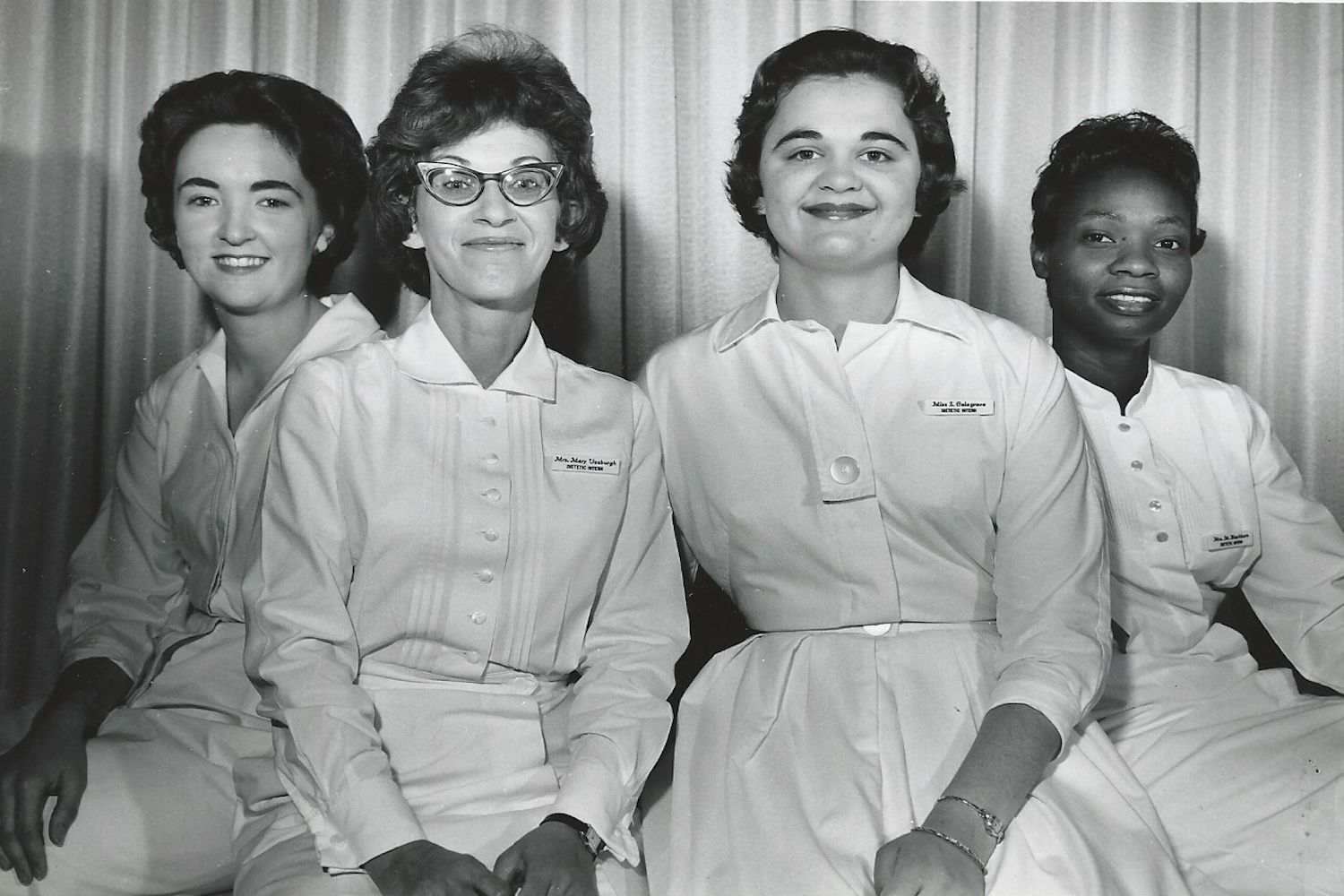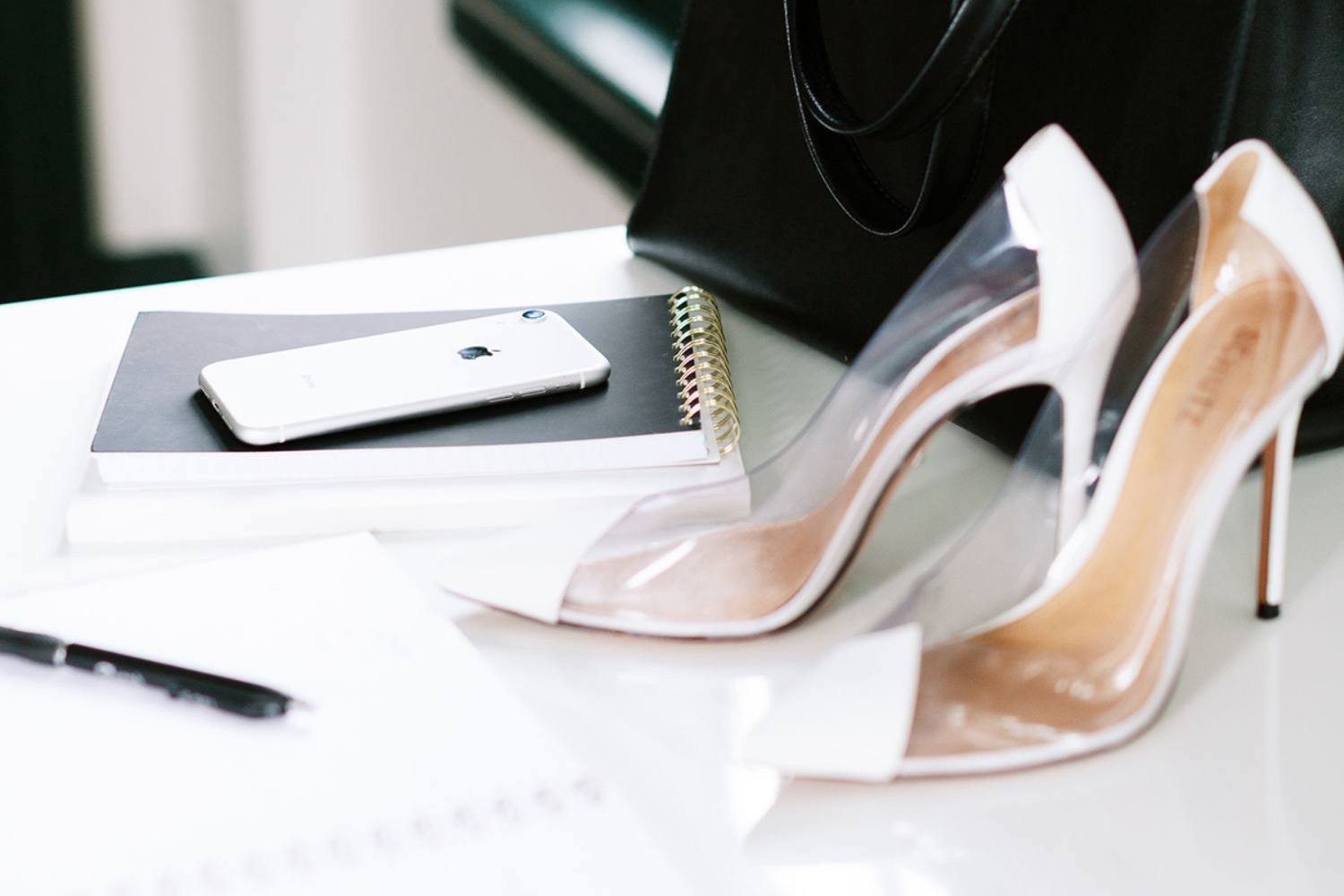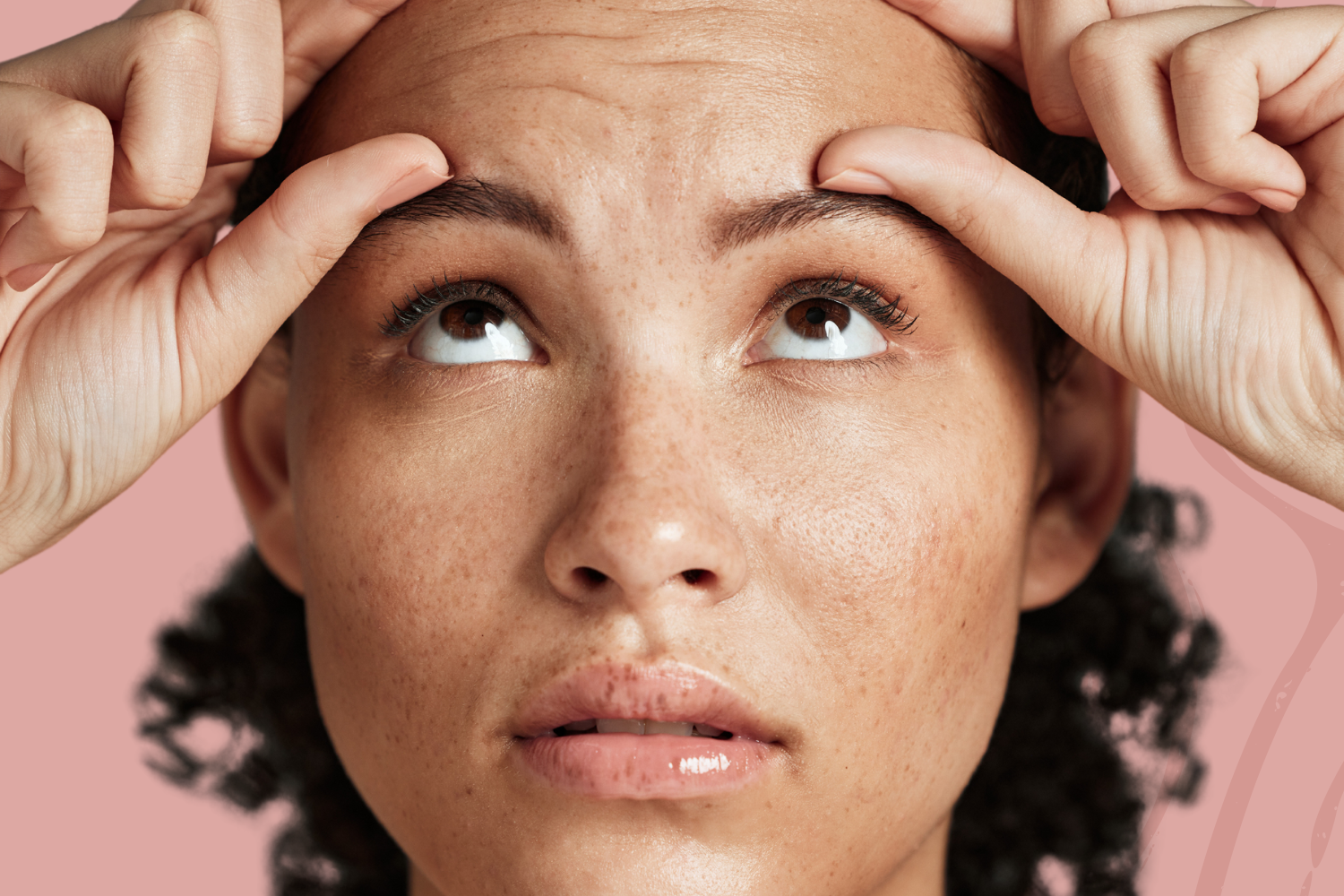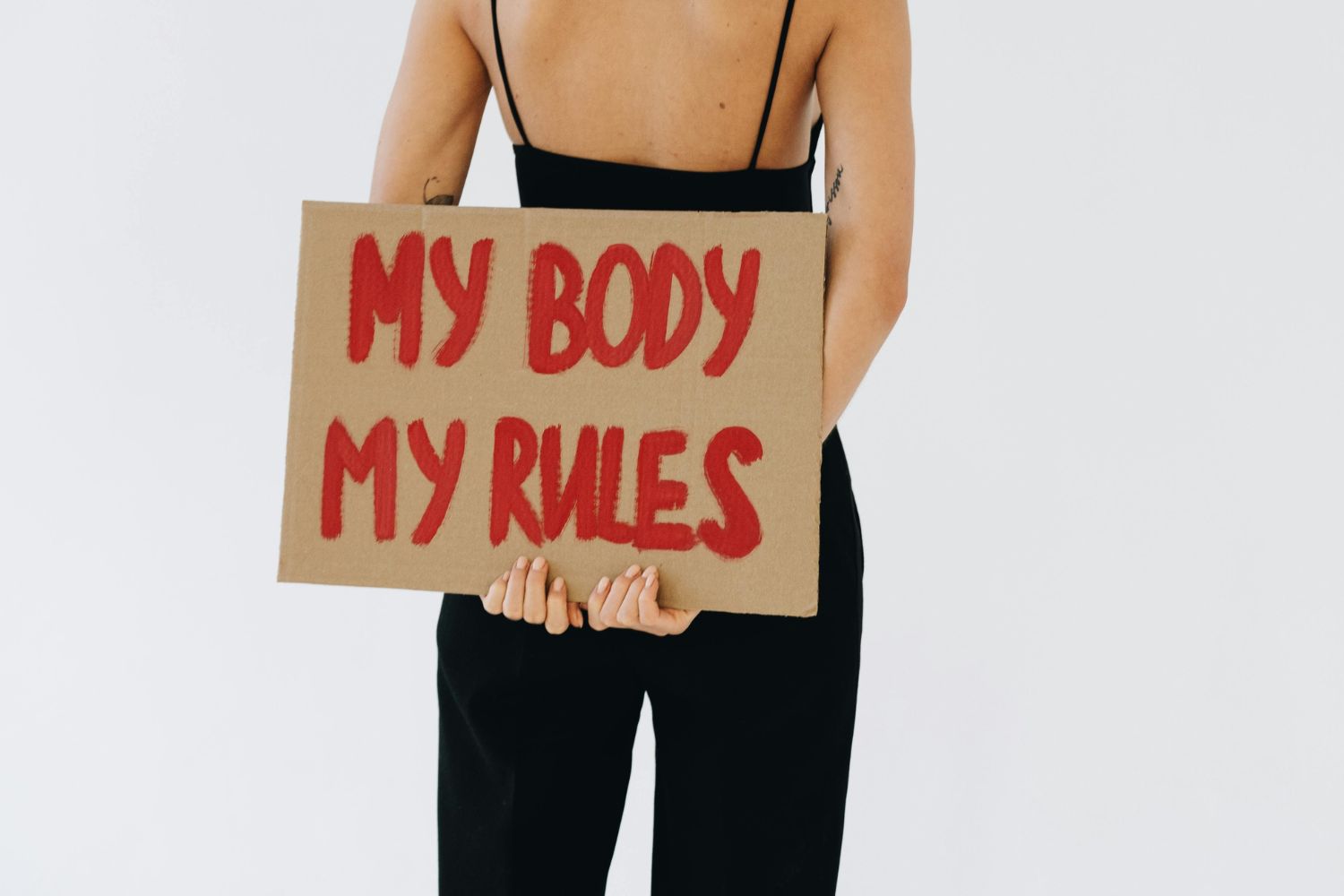
South Korean sexism birthed the 4B movement. Is this boycott of men and childbirth heading West?
Women everywhere are fed up with the patriarchy, but is it time to boycott men? For a group of women in South Korea, the answer is yes. Korea’s 4B feminist movement is made up of women who have sworn off sex, child-rearing, and heterosexual relationships overall.
Given the country’s 31% gender pay gap, high rate of femicide, and impossible beauty standards, it’s easy to see why Korean women are upset. Throw in that they’re being blamed for the country’s low birth rate, and the movement — directed against rampant misogyny — makes total sense.
The 4B movement centers around Korean women in their 20s and 30s, but it’s part of a much longer legacy and one all women can be a part of, regardless of age or nationality. Here’s how the 4B movement has been influenced by — and can influence — women in midlife.
What is the 4B movement?
“4B is made up of women in Korea who started to get fed up with the pressure to fix what the nation saw as the problem of low fertility,” says Amy Blackstone, a professor of sociology at the University of Maine and the author of Childfree by Choice.
Currently, South Korea is tied with China, Hong Kong, and Palau for the lowest birth rate in the world, according to the World Bank.
The group’s name refers to four Korean words that encapture the movement’s pillars:
- Bihon: no marriage
- Bisekseu: no sex with men
- Bichulsan: no child-rearing
- Beonae: no dating men
The movement started in 2019, though it’s difficult to pin an exact start date or a membership count since 4B is decentralized, in part for the protection of its members. Women in the movement seem to have ways to contact one another, but they remain anonymous to those outside the movement.
4B movement origins
4B isn’t isolated. It’s part of a larger fight for equality in South Korea and worldwide. Blackstone mentions that this group is similar to the earlier “Escape the Corset” movement, a response to the country’s toxic beauty standards.
In 2015, a Facebook post calling out South Korean beauty standards sparked Escape the Corset. This movement took off among South Korean teens and 20-somethings who questioned and challenged Korean beauty practices. Members of the movement cut their hair and chose not to wear makeup.
Other cultural influences have contributed to the need for 4B. Femicide and romantic partner violence are more common in South Korea than in many other countries. And, according to a 2022 study, intimate partner femicide may be higher due to Korean laws and policies.
Other institutional policies work against women too. Unmarried women are excluded from the country’s welfare program and not given as many opportunities in the workplace. The president of South Korea has even blamed feminists for the country’s poor birth rate.
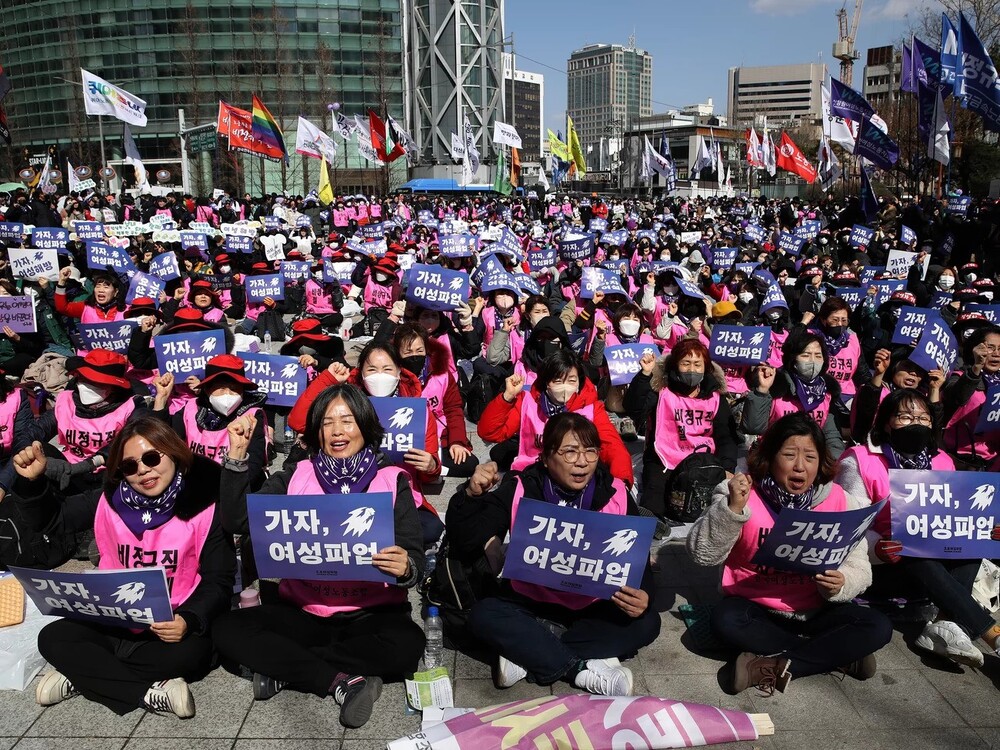
Chung Sung-Jun/Getty Images
4B feminist movement goes worldwide
Korean women aren’t alone in boycotting heterosexual relationships or having children. A Morgan Stanley study projected 45% of American women between the ages of 25 and 44 could be single by 2030. The birth rate is also falling in the United States.
While American women haven’t formally come together in a collective movement, these stats and the solidarity with the movement on TikTok suggest 4B’s frustrations are resonating and gaining traction in international borders.
One element we might all adopt from 4B is their strong sense of community. “When you’re pushing back against something as profound as the expectation of marriage, child-rearing, heterosexuality, and beauty, you gotta have your people behind you,” says Blackstone, “And it sounds like the 4B movement does, which is great.”
Childfree herself, Blackstone has found in-person and online communities to be a great comfort as she navigated the stigma around not having children. Awareness of this stigma, which movements like 4B contribute to, can be freeing as well.
“When I began to understand that stigma was by design, it was very freeing,” Blackstone reflected, “I thought, ‘Oh, gosh, there’s nothing wrong with me, and these stereotypes aren’t true; they exist to pressure me to have a kid. Just that knowledge alone can be very freeing.”
What about women in midlife?
4B and similar movements (such as #MeToo) often revolve around younger women. That’s understandable, given the pressure placed on women in their 20s and 30s to start families or fit a specific ideal.
But women over 40 are obviously impacted by the patriarchy too. In midlife, many women feel invisible, finding it impossible to fit the “ideal woman” stereotype, which relies on youth. “We’ve passed the point of being able to achieve that simply by virtue of our age,” Blackstone explains.
In the US, there’s a related trend (20 million TikTok posts) around “decentering men.” The “decentering” attracts both young and midlife women and has a lot in common with 4B, (including swearing off marriage, sex, and dating, refusing to have children, and specifically refusing to have children “because we’re sick of this crap.”) Much of “decentering” is also around how women who don’t necessarily want to exit hetero relationships can start focusing less on the man’s needs. For instance: Ceasing to buy gifts for his family, not making his appointments, and not dressing for the male gaze.
What all of these trends have in common is that this “ideal woman” stereotype can be coped with, pushed back against, or rejected. For Blackstone, rejection of it led to peace. “I realized this model was not created by people like me and is not for people like me. This realization has led to a more joyful and meaningful life,” she reflects.
Because the 4B movement questions Korean ideals for women, it’s an example we can all follow. Women are stronger when we help each other navigate societal pressures and stereotypes, pushing back on them together.
A lasting legacy
The 4B Movement is part of a much longer legacy. Millennial and GenZ women aren’t the first to fight against the patriarchy, and they don’t have to do it on their own. “I’m so grateful for what millennials and GenZ are doing, but they aren’t the first,” Blackstone says, “It would be useful for them to understand that they are not alone.”
GenX and Boomer women have navigated patriarchal pressure throughout their lives and have knowledge, support, and insight to add to current feminist movements. Blackstone concludes, “Changing attitudes takes a very long time and we can all be part of that legacy.”

